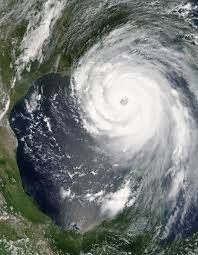Hurricane Katrina: A 18-Year Retrospective on Its Impact

The Importance of Hurricane Katrina
Hurricane Katrina, which struck the Gulf Coast of the United States in August 2005, remains one of the deadliest and costliest storms in American history. This catastrophic event not only reshaped the physical landscape but also had profound social, economic, and political implications. As we approach the 18th anniversary of this disaster, it is crucial to revisit its impact and the lessons learned to better prepare for future storms.
The Storm Unfolds
On August 29, 2005, Hurricane Katrina made landfall in Louisiana as a Category 3 storm with wind speeds exceeding 125 mph. The levee system designed to protect New Orleans failed catastrophically, leading to widespread flooding and devastation in the city. In total, Katrina caused over 1,800 fatalities and displaced thousands more, disrupting the fabric of communities. The storm also inflicted an estimated $125 billion in damages, making it a stark reminder of the vulnerabilities faced by coastal cities.
Response and Recovery Efforts
The response to Hurricane Katrina has been widely critiqued for its inadequacies. Federal, state, and local agencies were criticized for slow and poorly coordinated efforts in the face of the disaster. The Federal Emergency Management Agency (FEMA) faced significant scrutiny for its handling of relief efforts, as many residents were left without food, water, or shelter in the immediate aftermath. The video footage of families stranded on rooftops seeking help shocked the nation, bringing forth discussions on disaster preparedness and response strategies.
Lessons Learned and Reforms Made
The aftermath of Hurricane Katrina has led to numerous reforms in emergency management and urban planning. Significant investments have been made to improve flood defenses and the levee system in New Orleans. Furthermore, local and federal agencies have revised emergency response protocols, emphasizing the importance of swift action and effective communication in a crisis. Initiatives that prioritize community involvement and resilience have also emerged, recognizing that effective preparedness relies on the empowerment of local populations.
Conclusion: The Significance Today
As we remember Hurricane Katrina, its legacy serves as a sobering reminder of the impact of natural disasters and the imperative for better preparedness. Climate change continues to intensify weather events across the globe, making the lessons learned from this disaster more relevant than ever. Educating communities about the risks and improving disaster response frameworks will be essential in safeguarding lives and property in the future. Reflecting on these experiences not only honors the lives affected by Katrina but also helps fortify our infrastructure against inevitable storms to come.


